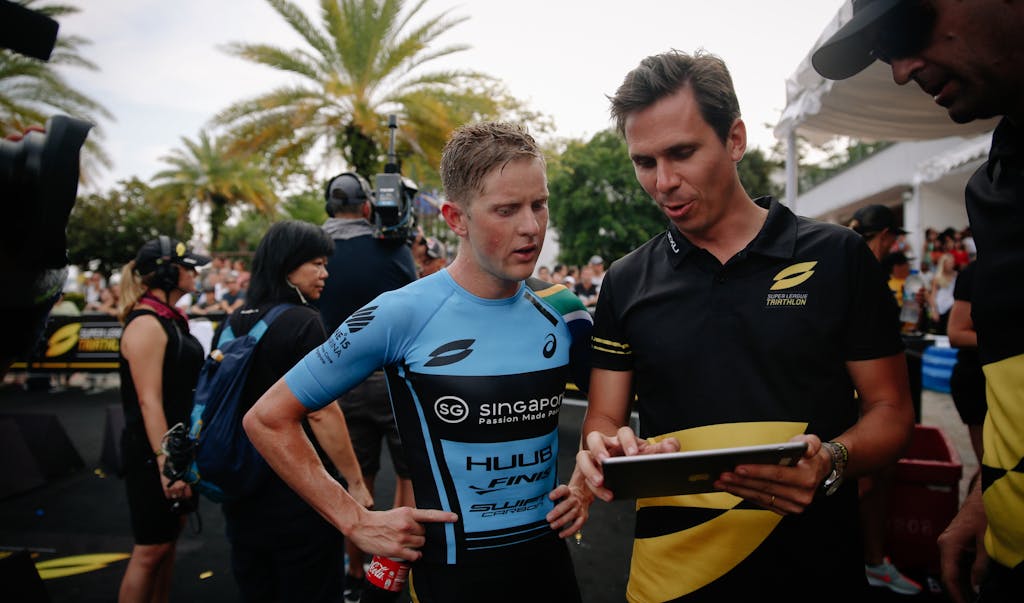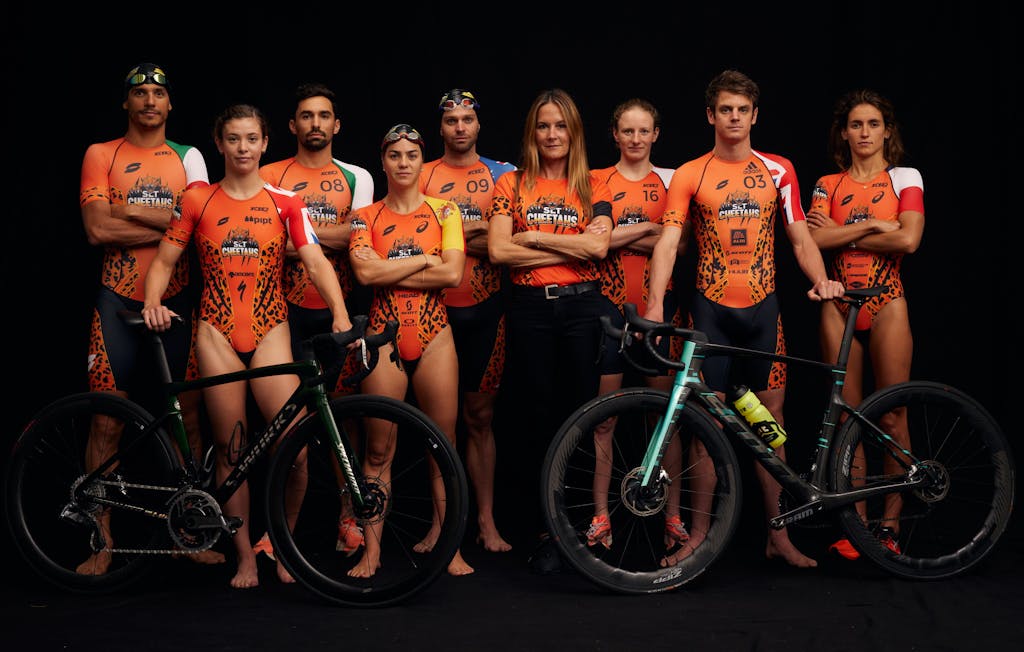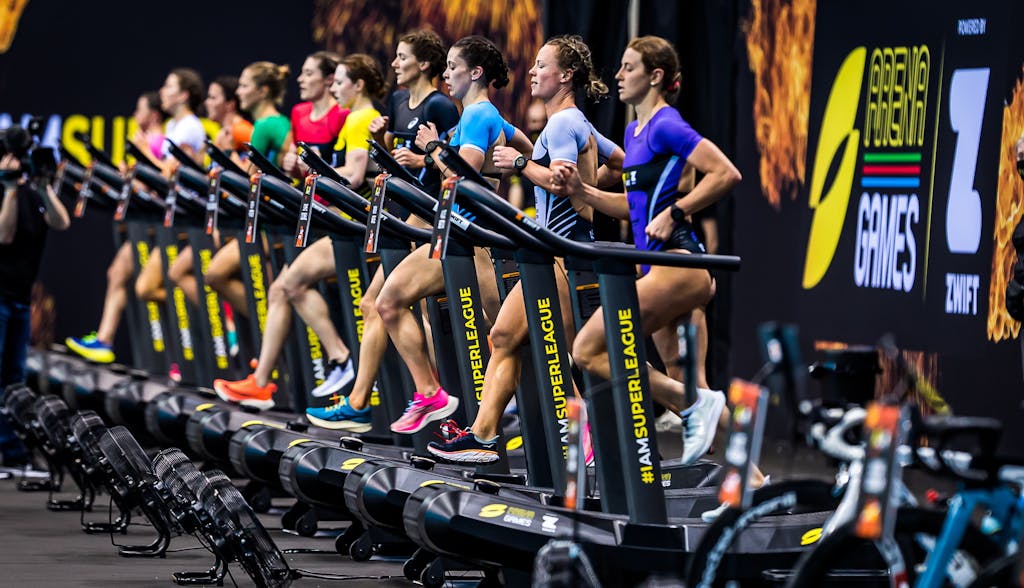While many rights-holders adapted their strategies to navigate the challenges of Covid-19, few enjoyed a journey of innovation like the one embraced by Super League Triathlon.
Having launched only three years before the pandemic began, it would have been understandable if the disruption caused by stifled international travel and strict social distancing had spelled disaster for an organisation that was building steadily on the growing popularity of a mass-participation sport.
However, for SLT, such hurdles presented opportunities, as well as challenges.
The launch of the Arena Games concept last year introduced an intriguing new virtual perspective to SLT’s competitive output, while this year’s flagship Championship Series featured teams for the first time, adding a fresh dimension that has attracted buy-in from athletes, stakeholders and fans.

Teams
Taking inspiration from other franchise-based sports tournaments, from cricket to cycling, SLT’s Championship Series welcomed five teams ahead of the 2021 campaign: the Scorpions, Eagles, Cheetahs, Rhinos and Sharks. Former world champions, Ironman winners and Olympians such as Chris McCormack, Tim Don, Annie Emerson, Ronnie Schildknecht and Michelle Dillon were lined up as managers.
Forty athletes were selected across the five teams via a draft that was broadcast live on SLT’s YouTube channel.
“I have wanted to do it since the beginning and everything felt like a restart after the pandemic, and we wanted to introduce the new teams at the right time,” explained SLT chief executive Michael D’hulst.
“It was an opportunity to commit to the teams and sit around the table with them to help re-shape the sport. Together we can be stronger.”
The 2021 Championship Series took place over four back-to-back weekends in September, visiting London, Munich and Jersey before the final round in Malibu, with the latter race having been acquired by SLT late last year. Such expansion in uncertain times across the global sports industry illustrated the organisation’s optimism – and D’hulst remains confident that the investment represented sound business as it marked an entrance into the US.
“It was, and is, important for us that we acquired Malibu, because of the dynamics of the market,” he explained. “Of course, triathlon is popular in Europe and popular with broadcasters. However, in North America, short-course and professional triathlon is not as popular yet, so we have to make it cool again!”
The Malibu Triathlon takeover represented a major step forward for SLT, given the event’s “rich history” dates to 1986. It helps that the high-profile race is also known for its celebrity participants, with Zac Efron, Tom Cruise and Jennifer Lopez all previous participants.
Linking up with a popular event that amplifies celebrity, history and fundraising can “jumpstart the reputation of Super League in the US,” said D’hulst.

Commercial support
The 2021 Championship Series attracted coverage from the likes of BT Sport in the UK and Sport1 in Germany, while SLT’s partners include major brands like Bank of America, Nike, Garmin and Red Bull.
One of SLT’s other partners, Zwift, supported the Arena Games, which gave athletes the chance to compete in the sport via self-powered treadmills, smart trainers and an Olympic-sized swimming pool. The action merges elements of esports, virtual sports and real-life physical activities while respecting Covid-19 protocols.
After the inaugural Arena Games event took place last year in Rotterdam, this year London was added to the schedule alongside the Dutch port. In November, SLT announced a partnership with World Triathlon to fuel the next stage of growth for the Arena Games, opening the format to wider participation than ever before in 2022.
“With this partnership, the sky’s the limit,” D’hulst added. “This could well be the next Olympic triathlon discipline. With a growing appetite at the very top levels of sport to bring esports to a much wider audience, this partnership is perfectly timed.
“As a broadcast product, it is very interesting because of the blended aspect. It comes across very well. It has a great dynamic as a broadcast product and of course the athletes are actually racing on a treadmill and racing on a stationary bike, meaning you get a lot of data.
“This is something we typically struggle with in triathlon; access to data is difficult because of the three sports. We have been able to provide a very immersive experience for broadcasts, with the blend between virtual and real life, and a high overlay of data insights.”

Forward-looking
With the new partnership with World Triathlon driving the growth of the Arena Games, and with more teams set to join the Championship Series in 2022, SLT is enjoying impressive momentum.
However, with a full-return to a calendar of mass-participation events still not set in stone, D’hulst is well aware that “uncertainty is the biggest challenge” as the organization plans for the future.
“For us, it is very important to showcase a fixed calendar so that fans, broadcasters and sponsors can buy into it,” he said, before adding that he will continue to look for inspiration from across the global sports industry.
“The whole ecosystem is set up and I’m very keen to bring in expertise and professionals from other organisations who are involved in other sports.
“We have tried to be as data-driven as possible, so we work with the likes of Nielsen and Seven League to evaluate what we do, and our format is designed to be as dynamic, media-friendly and entertainment-focused as possible.”